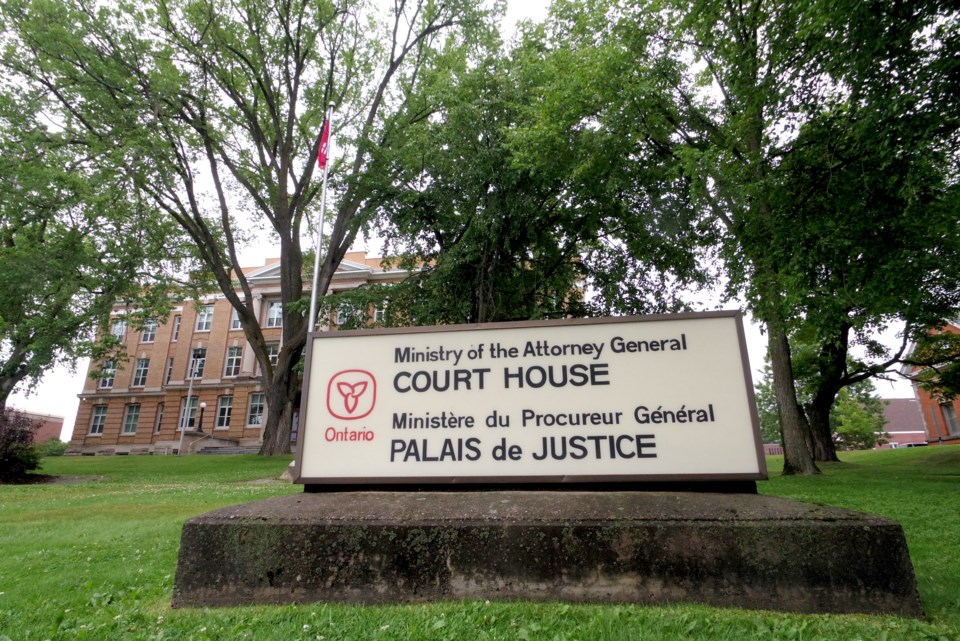If Ontario Court Justice Andrew Buttazzoni rules in favour of the motion brought Monday by the defence, the expert's evidence will be applied to the trial, and the Crown will be able to call reply evidence
If he denies the request, a date will be set for the 72-year-old man to be sentenced on a count attempted murder for a brutal June 7, 2016 machete attack on his nephew.
The Sudbury judge found Duplin guilty of the offence for his "horrendous, life-threatening attack" on the sleeping, defenceless younger man on Nov. 30.
On Monday, the court heard from Dr. David Rosenbloom, a clinical professor in the department of medicine at McMaster University.
He examined Duplin's medication records from Sault Area Hospital and a list of the medications dispensed to him from a local pharmacy.
Based on this, he said Duplin was taking prescriptions for COPD and a number of central nervous system depressants, as well blood pressure and cholesterol medicines.
The depressants included an opioid product used for pain and two tranquilizers.
Rosenbloom described one of the dosages as "absolutely huge."
The combination of the drugs if taken as prescribed would affect brain functioning - would decrease problem solving, thinking, the ability to comprehend situations and controlling one's behaviour, he told defence lawyer Michael Lacy.
With the consumption of alcohol, it would cause severe confusion, an inability to know what you are doing or carry out a thoughtful conversation, and unable to analyze a situation, Rosenbloom said.
He agreed the effects of the combination of the medications, alcohol and marijuana could lead to bizarre behaviour.
Striking someone repeatedly with a machete, hitting him 22 times, could result from an impact on cognitive thinking.
"I don't think he would appreciate the consequences," said Rosenbloom, who was testifying via a video link.
Prosecutor David Didiodato asked if his opinion was that taking the combination of these drugs and alcohol, along with marijuana, could cause confusion about the attack.
"As far as I am aware here was no reason for the attack," Rosenbloom replied, adding if one was looking for a cause, the alcohol and drugs accounted for the actions that occurred.
He agreed that he is a pharmacist, not a medical doctor, psychiatrist or psychologist.
The assistant Crown attorney also questioned Rosenbloom about the drug dosage he described as absolutely huge, suggesting a tolerance can be developed and the amounts have to be increased to be effective.
"Correct," the witness said, agreeing that he didn't know how long Duplin had been taking these medications and if he has a history of intolerance.
Didiodato pointed out that the man's doctor would be in a better position to subscribe drugs for him than Rosenbloom.
"I think there are issues with what was prescribed," the witness. "I don't have the knowledge his doctor has."
The Crown repeated his question. "Theoretically yes," was the reply.
In his submission, Lacy argued there is evidence of the effect of drugs on cognitive functioning.
Someone on drugs and alcohol could strike someone 22 times, and not appreciate his actions, the Toronto lawyer said.
"The consequences of consuming a cocktail of medications and alcohol goes to the issue of intent."
Lacy said there was circumstantial evidence from which the court can infer Duplin took his medications as prescribed from the ongoing refill of the prescriptions.
Didiodato countered that the medical records submitted Monday were hearsay.
They were based on statements Duplin had given to staff at the Algoma Treatment and Remand Centre, including telling them he had taken all his medications that day.
These exculpatory statements were not subjected to cross-examination and shouldn't be given any weight, he said.
The Crown argued that this can't affect the court's finding of facts, including the part of the body where Paquette was injured, during trial.
When Buttazzoni convicted Duplin, he said the strongest evidence of intention to kill was the nature of the assault.
He pointed to the number of the blows to Paquette's head, a vulnerable part of his anatomy, with an "imposing weapon," a machete with a 16-inch and 3-inch wide blade.
EDITOR'S NOTE: SooToday does not permit comments on court stories
